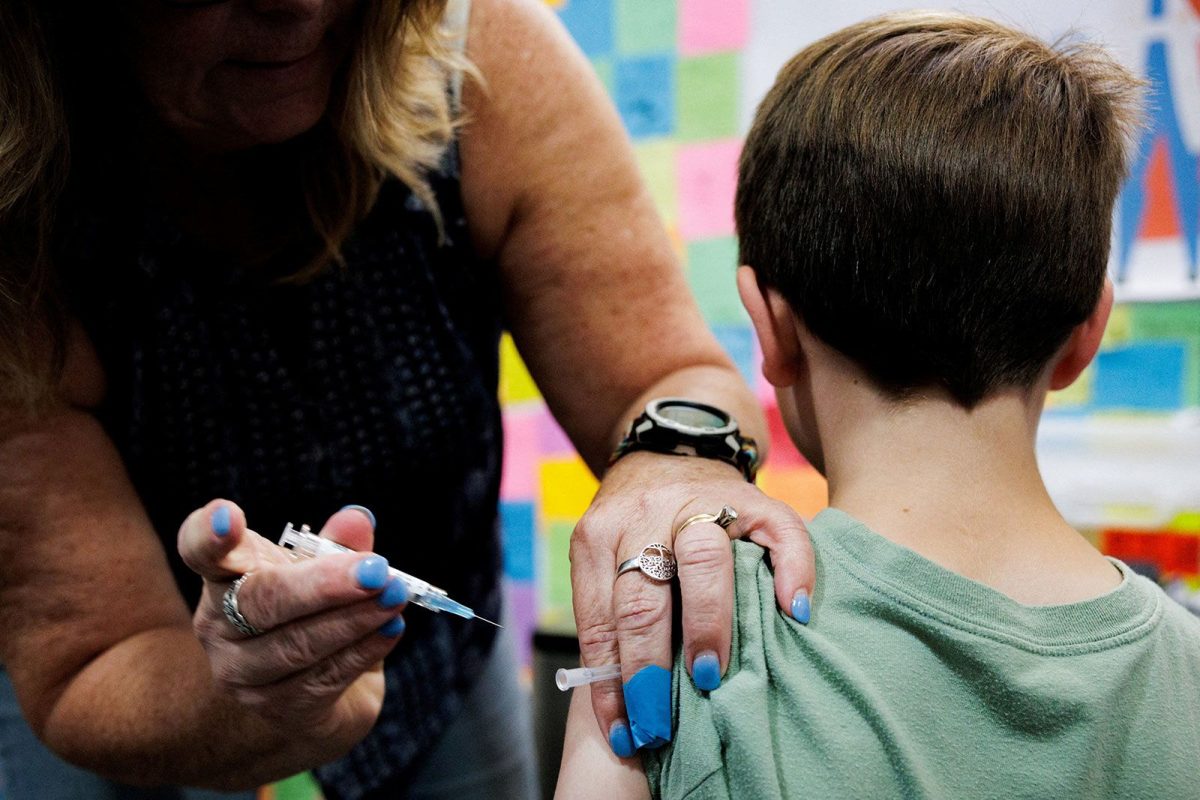(CNN) — A new working group of outside advisers to the US Centers for Disease Control and Prevention will convene to assess the safety, effectiveness and timing of the shots children and adolescents get, as well as whether the schedule should be changed, according to a new document posted on the CDC’s website.
This group will be part of the CDC’s Advisory Committee on Immunization Practices or ACIP, a panel of independent experts who regularly meet to assess what vaccines should be given to the public and when. In an unprecedented move, US Health and Human Services Secretary Robert F. Kennedy Jr. fired all 17 members of ACIP in June and replaced them with his own picks, some of whom have made false claims about vaccines.
ACIP regularly uses smaller work groups to prompt discussions on recommendations under consideration by the broader committee. But the new CDC document does not pinpoint any single study showing a problem with the current way kids in the US gets their shots that would prompt the formation of this new group.
Many of the vaccines on the current schedule are universally recommended worldwide, the document notes, but different countries have different schedules, and the rationale for this group “includes considerations such as the use of new vaccine technologies and ingredients, and the rise of vaccine hesitancy.”
The ACIP working group will prepare information for the broader committee to make recommendations that consider the timing of the vaccines, when to give vaccines concurrently, the safety of the ingredients in the vaccines, the efficacy and safety of schedules used in other countries, and the financial burden these vaccines place on parents and providers.
The names of the working group members and who will lead it have not been disclosed. The CDC document says the new working group will meet on an as-needed basis, but its meetings and materials won’t be available to the public, unlike ACIP meetings.
One of the group’s focuses will be an examination of substances added to vaccines to increase their efficacy, called adjuvants. The document gives the example of aluminum and whether it raises a child’s risk of asthma. Aluminum salts are used in several childhood vaccines because they allow doctors to give fewer doses of a vaccine, and a smaller amount of the vaccine is needed to protect the child.
A 2023 observational study found a possible association between exposure to aluminum in vaccines and asthma, but the researchers cautioned that the effect size was small and the study had significant limitations. For example, the research couldn’t determine what other factors may lead to a person developing asthma, like genetics or exposure to secondhand smoke.
A more recent study published in July looked at records for more than 1.2 million Danish children and found that cumulative aluminum exposure from vaccination during the first two years of life was not associated with increased rates of any of the 50 disorders assessed, including asthma.
Kennedy, a vaccine skeptic, has taken issue with the Danish study and said it should be retracted. He wrote in an editorial that the study’s methodology, analysis and results were flawed, and he claimed that the authors “meticulously designed it not to find harm.” The journal where it was published, Annals of Internal Medicine, said it stood by the study and had no plans to retract it.
Childhood vaccination has become a hot topic within the Trump administration.
In a Cabinet meeting Thursday, President Donald Trump made a number of false claims about vaccines given to children, including that babies get 82 vaccines in a single shot. He also said babies are given vaccine doses the size of two glasses of water, but a standard dose for most vaccines is a small fraction of a teaspoon.
Two weeks ago, in a news conference on autism, the president mentioned that he had “been hearing” that the combination shot used to protect children from measles, mumps and rubella is “bad.” Trump said companies should split up the MMR shot into three. The acting CDC director has also called for vaccine makers to develop separate shots against these conditions, even though the CDC’s website says there is no evidence that there would be any benefit to giving them separately.
Kennedy had promised at his confirmation hearing that he “will do nothing as HHS secretary that makes it difficult or discourages people from taking vaccines,” but critics — even some Republicans — have started to express concerns.
At a hearing in September, Sen. John Barrasso of Wyoming said he had grown “deeply concerned” over Kennedy’s handling of vaccines. Sen. Bill Cassidy of Louisiana accused Kennedy of breaking his promise, saying that Kennedy’s moves mean “effectively, we’re denying people vaccines,” but Kennedy retorted sharply “You’re wrong.”
In May, HHS terminated a $590 million contract with Moderna to develop a bird flu vaccine project, and in August, it canceled $500 million in research into mRNA vaccines.
In August, HHS re-established the Task Force on Safer Childhood Vaccines, a panel of US health officials tasked with making recommendations on vaccine development, distribution and monitoring. The move followed a lawsuit filed by attorney Ray Flores, who is the senior outside counsel for Children’s Health Defense, the anti-vaccine advocacy group formerly led by Kennedy.


